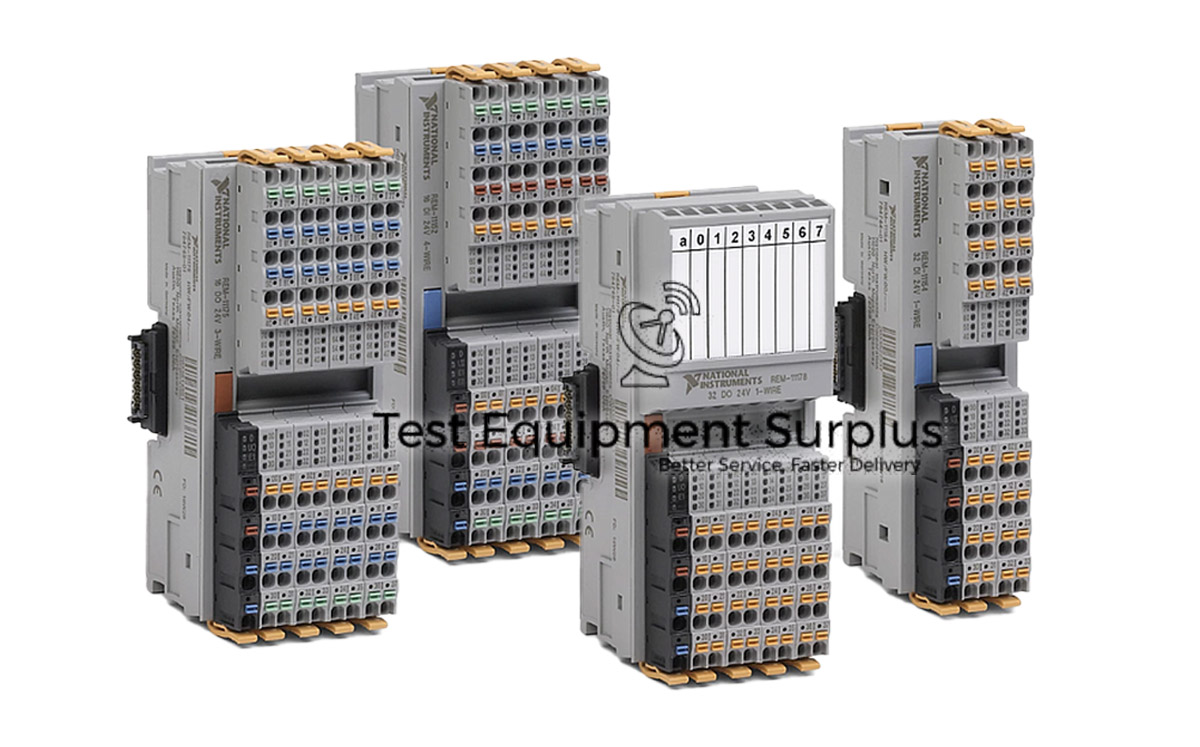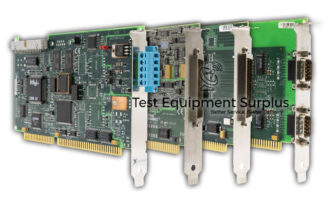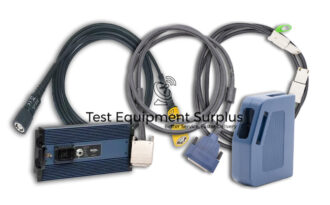Description
The National Instruments REM-11102, with a part number of 784747-01, is a Current Input Module designed specifically for Remote I/O applications. This module features a versatile 4-channel design that supports 2-wire, 3-wire, and 4-wire sensor configurations, making it highly adaptable to various control system requirements.
It offers a selectable input range that includes 4 to 20 mA, 0 to 20 mA, and ±20 mA, ensuring compatibility with a wide range of industry-standard sensors. The 16-bit analog-to-digital converter within the module boasts a rapid conversion time of 31.25 μs, enabling quick data acquisition.
The REM-11102 module is designed to be efficient, consuming only 120 mA of power from the bus connector and having a total power consumption of just 1.5 watts. The module’s performance is further enhanced by its ability to handle data rates up to 100 Mbits/s, facilitating fast communication within the control system.
For ease of installation and maintenance, the module features convenient spring terminals for connectivity. Additionally, it utilizes the EtherCAT communication protocol, a highly reliable and efficient standard that allows for seamless integration into existing control systems.
| Feature | Description |
|---|---|
| Part Number | 784747-01 |
| Product Name | National Instruments REM-11102 |
| Type | Current Input Module for Remote I/O |
| Channels | 4-channel |
| Supported Configurations | 2-wire, 3-wire, and 4-wire |
| Input Range | 4 to 20 mA, 0 to 20 mA, and ±20 mA |
| Analog-to-Digital Converter | 16-bit |
| Conversion Time | 31.25 μs |
| Power Consumption from Bus Connector | 120 mA |
| Total Power Consumption | 1.5 watts |
| Data Rate | Up to 100 Mbits/s |
| Connectivity | Spring terminals |
| Communication Protocol | EtherCAT |
Question 1: What are the sensor configuration options available with the National Instruments REM-11102 Current Input Module, and how does its design contribute to its adaptability in various Remote I/O applications?
Answer 1: The National Instruments REM-11102 Current Input Module offers sensor configuration options for 2-wire, 3-wire, and 4-wire setups, and its 4-channel design contributes to its adaptability in various Remote I/O applications by allowing it to support a broad range of industry-standard sensors and control system requirements.
Question 2: What sensor configurations are supported by the National Instruments REM-11102 Current Input Module, and how fast is its analog-to-digital conversion time?
Answer 2: The National Instruments REM-11102 Current Input Module is compatible with 2-wire, 3-wire, and 4-wire sensor configurations due to its versatile 4-channel design.
Question 3: What type of sensor configurations is the National Instruments REM-11102 Current Input Module compatible with due to its 4-channel design?
Answer 3: The National Instruments REM-11102 Current Input Module supports 2-wire, 3-wire, and 4-wire sensor configurations, and its analog-to-digital converter has a rapid conversion time of 31.25 microseconds.
Question 4: What types of sensor configurations can the National Instruments REM-11102 Current Input Module accommodate, and what are its main features and specifications in terms of input range, analog-to-digital conversion speed, power consumption, data rate, and communication protocol?
Answer 4: The National Instruments REM-11102 Current Input Module can accommodate 2-wire, 3-wire, and 4-wire sensor configurations; it features a selectable input range of 4 to 20 mA, 0 to 20 mA, and ±20 mA, a 16-bit analog-to-digital converter with a conversion time of 31.25 μs, power consumption of 120 mA from the bus connector with a total power consumption of 1.5 watts, data
Question 5: What are the different sensor configurations and input ranges supported by the National Instruments REM-11102 Current Input Module, and what are its data rate and power consumption specifications?
Answer 5: The National Instruments REM-11102 Current Input Module supports 2-wire, 3-wire, and 4-wire sensor configurations and offers selectable input ranges of 4 to 20 mA, 0 to 20 mA, and ±20 mA; it can handle data rates up to 100 Mbits/s and has a power consumption of 1.5 watts, with 120 mA drawn from the bus connector.



